4 Symptoms of a Valve Cover Gasket Leak (and Replacement Cost)
Oil leaks plague aging engines, but valve cover leaks top the list and are by far the most common. But don’t stress as valve cover gasket leaks are quite common, especially once your car has some miles on it.
Read on to learn what causes a valve cover to leak, symptoms of gasket failure, and what it’ll cost to replace it (it may be more than you think).
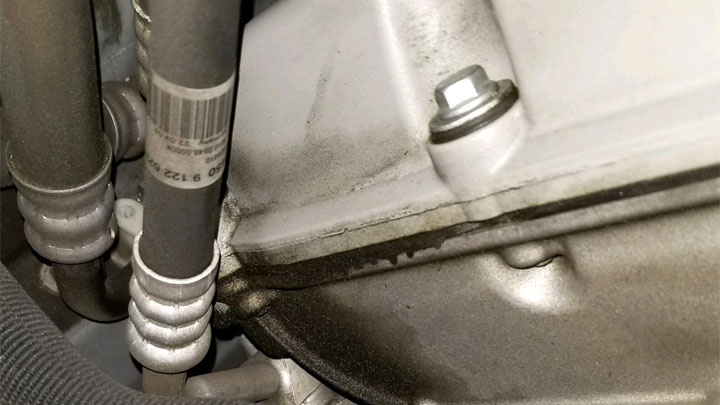
What is a Valve Cover Gasket?
A standard internal combustion engine is made up of numerous structural components, all of which are fitted together to function in an effortless fashion. However, these components must be sealed together to prevent fluid loss when an engine is in operation.
This seal is formed with the use of specialized gaskets, which have been cut or molded to the exact dimensions necessary for proper fitment. In the past, gaskets of this nature were constructed from pressed fiber or cork, of varying thicknesses. Today, the vast majority of automotive gaskets are made of rubber coated plastic, or specialty fiberglass compounds.
One particular structural junction that requires the use of a gasket, is that which exists between an engine’s cylinder head(s) and valve cover gasket(s). A standard inline engine features one cylinder head, while engines of a “V” configuration feature two heads.
These heads contain an engine’s valvetrain components (valves, valve springs, and rockers), which continually actuate to control the distribution of intake air into each cylinder, as well as the release of combustion gases into the exhaust tract. These valvetrain components are cooled and lubricated by a steady supply of engine oil.
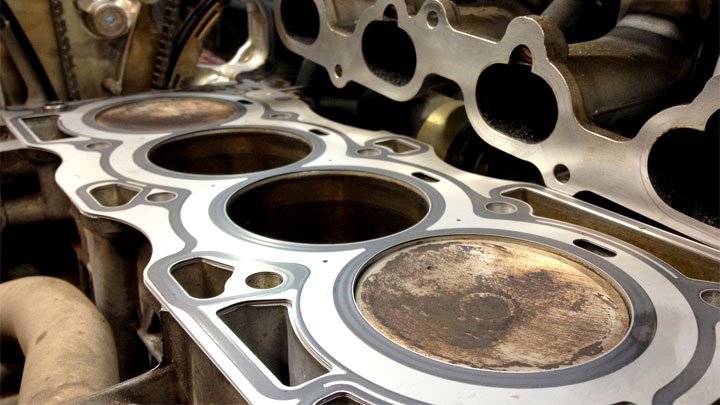
Each cylinder head is capped with a valve cover, which was also referred to as a rocker cover in service literature of the earlier era. An engine’s valve covers prevent oil loss from the cylinder heads on which they reside, while simultaneously preventing debris from being deposited within.
Between each cylinder head and valve cover, resides a valve cover gasket, which provides a far more efficient seal, than that which would be provided by metal-on-metal fitment. Without a valve cover gasket, oil would readily leach from the junction between these two vital components.
See Also: Symptoms of an Intake Manifold Gasket Leak
Bad Valve Cover Gasket Symptoms
A bad valve cover gasket can cause a number of troublesome, yet easily recognized symptoms. Most symptoms of this nature are relatively standard, from one particular model of engine to the next.
The following are several of the most common symptoms associated with a bad valve cover gasket.
#1 – The Smell Of Burning Oil

As oil seeps from an engine’s valve cover gasket, it comes into contact with many heated surfaces. This oily residue begins to “cook” when exposed to heat sources found within a vehicle’s engine bay. As a result, a detectable odor of burnt oil becomes apparent.
This smell will persist until the offending valve cover gasket is replaced. Upon replacement, a vehicle’s engine should be cleaned with the use of a degreaser and warm water. Doing so will alleviate the above mentioned odor.
#2 – Visible Oil On Engine’s External Surfaces
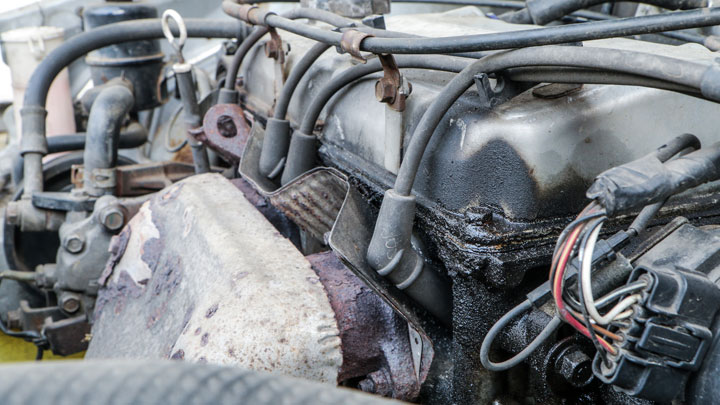
A leaking valve cover gasket is most easily identified by the presence of an oily residue, which coats the external surfaces of an engine’s cylinder heads. If such a leak becomes severe enough, this residue can extend downward toward an engine’s block.
This not only creates a mess but also makes it difficult to locate the source of any additional leaks that are present. This oil contamination can only be resolved by replacing the offending valve cover gasket, before thoroughly cleaning the engine itself.
While oil that makes it to the undercarriage of a vehicle may be from the valve cover, a faulty oil pan gasket may also be to blame.
#3 – Low Oil Level
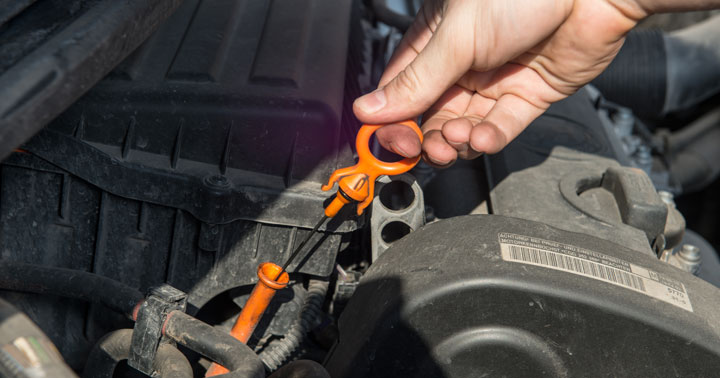
An internal combustion engine is designed to operate in the accompaniment of a set amount of motor oil. This is represented by an engine’s total oil capacity. Whenever oil leaks from an engine at any point, and is not replenished, the total amount of oil within an engine is reduced.
If severe enough, a valve cover gasket leak can deplete an engine’s oil level to the point of causing secondary issues, such as the accelerated wear of internal components. This can prove disastrous if not remedied in short order.
Related: What Happens When You Put Too Much Oil in Your Car?
#4 – Engine Misfire
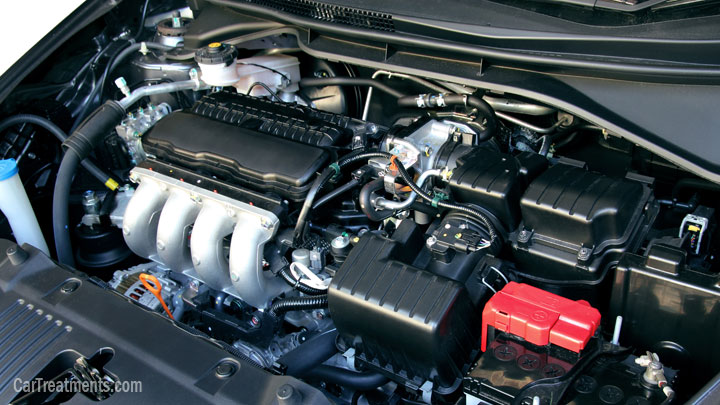
Valve cover gasket leaks can allow oil to flow into a number of places that it is never intended to reach. One such location is the area in and around an engine’s spark plug wells. When oil accumulates in this area, a number of issues can arise, which most notably include engine misfire.
With time and sufficient leakage, oil can contaminate a spark plug to the point of saturating its insulator and electrode. This, in turn, can necessitate spark plug replacement. This process will have to be repeated time and time again, if an engine’s leaking valve cover gasket is not eventually replaced.
What Can Cause a Valve Cover Gasket to Fail?
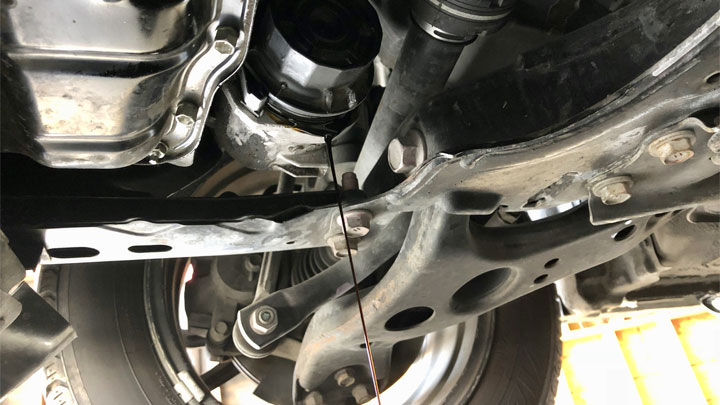
While all valve cover gaskets are prone to leakage with time, several different factors can also play a key role in the depletion of such a gasket’s structural integrity. The vast majority of which are at least partially maintenance-related in nature.
#1 – Infrequent Oil Changes
Perhaps the most significant cause of premature valve cover gasket failure is infrequent engine service. Fresh engine oil, which is changed at a regular interval, contains a number of additives that are intended to prevent gasket deterioration.
With time these additives begin to break down, which in turn, leaves an engine’s valve cover gasket(s) vulnerable to accelerated wear and aging. This often occurs when items of routine maintenance are ignored for extended periods of time.
Related: 10 Signs Your Car is Overdue for an Oil Change
#2 – Overheating
Another leading cause of valve cover gasket failure is overheating. All engines are intended to operate at a predetermined temperature. If this predetermined value is exceeded, as in the case of overheating, an engine’s gaskets become heat stressed, which poses an accelerated risk of cracking and blowout.
Overheating is not only hard on an engine’s valve cover gasket(s), but also jeopardizes the integrity of other vital seals, such as the head gasket. It is not uncommon to find multiple failed gaskets on a single engine, in the case of severe engine overheating.
See Also: Blown Head Gasket Symptoms
#3 – Over/Under Tightened Valve Cover Bolts
Additionally, previously replaced valve cover gaskets often begin leaking in short order, if an engine’s valve cover bolts are not properly torqued upon installation.
Over-tightening of these bolts can lead to improper gasket seating or pinched/flattened gasket surfaces. On the other hand, the under-tightening of these bolts often prevents a suitable seal from ever forming between each metallic surface.
Is a Valve Cover Gasket Leak Serious?
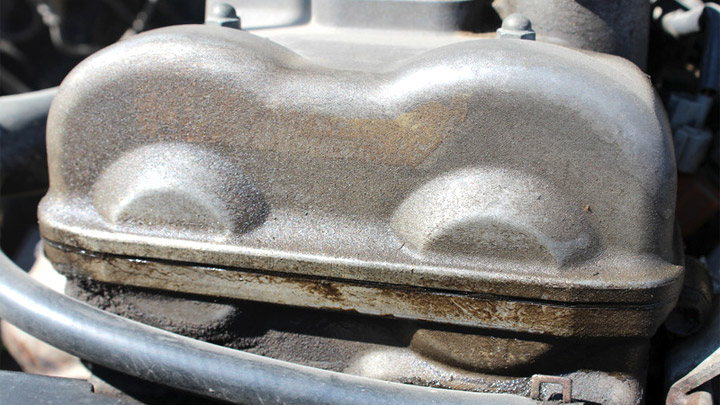
In the vast majority of cases, a valve cover gasket leak is not considered to be extremely serious. This is especially true of minor leaks, which do not heavily contaminate an engine’s external surfaces.
Generally, a valve cover gasket leak is only considered to be serious if it becomes severe enough to cause significant oil loss.
Additionally, a valve cover gasket leak that causes a misfire condition is also cause for concern. This occurs when run-off from a leak leads to the presence of oil in a spark plug well, thereby contaminating a spark plug’s electrode and insulator.
In any case, it is considered good practice to replace a leaking valve cover gasket within a reasonable amount of time. A leak of this nature will only progress in severity, eventually reaching a level of severity consistent with that described above.
Being proactive with such repairs helps to minimize the chance of any drivability-related symptoms.
How Long Should the Gasket Last?
The longevity of an engine’s valve cover gasket(s) largely depends upon several factors. These factors include the make of the engine in question, the frequency of standard engine maintenance, and the driving habits of a motorist.
Some OEM gaskets are naturally more durable than others, thereby providing a longer service life. Additionally, valve cover gaskets in a well maintained engine will almost always exhibit a higher level of durability than those that are neglected.
Additionally, gaskets found in the engine of a vehicle that is seldom driven, are more prone to premature failure, as they typically become dry and brittle.
However, on average, one can reasonably expect their engine’s valve cover gaskets to last for a period of 40,000-60,000 miles, with little to no issue. In some cases, gaskets of this nature can last considerably longer.
Valve Cover Gasket Replacement Cost
Best places to order parts? See: 19 Best Online Auto Parts Stores
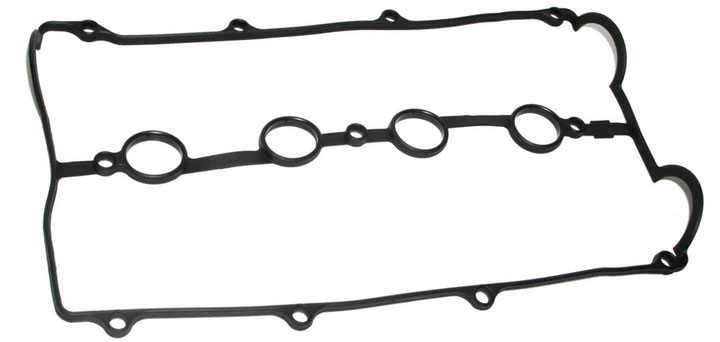
The cost of valve cover gasket replacement often varies significantly from one vehicle to the next. This is most often due to the difference in labor cost associated with completing such a job, across multiple engine designs.
In many cases, valve cover gasket replacement can be completed in 1-2 hours, leading to only modest labor charges. However, it can take as long as 4-5 hours to complete the same job on other more complex engines. This, of course, will command a much higher labor cost.
The cost of valve cover gaskets themselves also ranges significantly from one vehicle to the next. With some costing as little as $15, while others retail for north of the $100 mark. This must also be figured into the overall cost of such repairs.
However, on average, one can expect to pay between $90-$400 for valve cover gasket replacement. The lower end of this price spectrum is generally representative of replacement on 4-cylinder domestic engines, while the higher end of this range pertains to replacement on “V” configuration engines of a foreign make.
Materials Used for Valve Cover Gaskets
All valve cover gaskets have a job to do (maintain proper sealing and prevent oil leaks), but their construction plays a role in how well they do that. Here are some common types of materials used to make these gaskets.
Plastic
Plastic valve cover gaskets are becoming increasingly popular, especially for newer vehicles. They’re lightweight, fairly durable, and heat-resistant. However, plastic gaskets might not be the best choice for older engines, as they don’t hold up as well under extreme heat or high temperatures.
Rubber
Rubber gaskets, particularly those made from silicone or nitrile rubber, offer excellent heat resistance and longevity. They handle temperature fluctuations well and retain their shape, preventing potential leaks. However, rubber and silicone gaskets are typically more expensive than others.
Cork
Cork has been a traditional choice for valve cover gaskets due to its low cost and ease of installation. It provides adequate sealing for most engines, but it isn’t as durable as rubber or plastic gaskets.
Cork gaskets tend to compress over time, requiring more frequent replacement, and they may struggle under high temperatures.
Metal
Metal gaskets, often made from aluminum or steel, are incredibly durable and offer reliable sealing even in high-temperature environments. However, metal gaskets are more expensive and can be more difficult to install compared to other materials.
FAQs
Can a Leaking Valve Cover Gasket Lead to a Fire?
Yes, a leaking valve cover gasket can lead to a fire, though it’s rather rare. When oil leaks from the gasket and hits hot engine components, like the exhaust manifold or exhaust pipes, it can ignite and cause a fire.
If you notice a burning smell or see smoke from under the hood, it’s important to address the issue immediately.
Is It Safe to Drive With a Leaking Valve Cover Gasket?
It’s generally not recommended to drive with a leaking valve cover gasket. The simple reason why is that a leak can lead to a low engine oil level, and over time, cause damage to your engine do to the excess friction and heat that is inevitable when there’s not enough oil between moving parts.
Why Is My Valve Cover Gasket Leaking After Replacement?
If your valve cover gasket is leaking shortly after replacement, you’re not the first one to experience that. In many cases, the new gasket might have been incorrectly installed, pinched, or damaged during installation.
In a few instances, the valve cover itself might be warped or cracked, causing the leak. Finally, an issue with the engine’s vacuum system or pressure could be causing the leak, even with a new gasket in place.
- 5 Symptoms of an EVAP Leak (and Repair Cost) - Apr 27, 2024
- P0480 Code (Symptoms, Causes, and How to Fix) - Apr 19, 2024
- Car Temperature Gauge Stopped Working? (Here’s Why) - Apr 15, 2024
